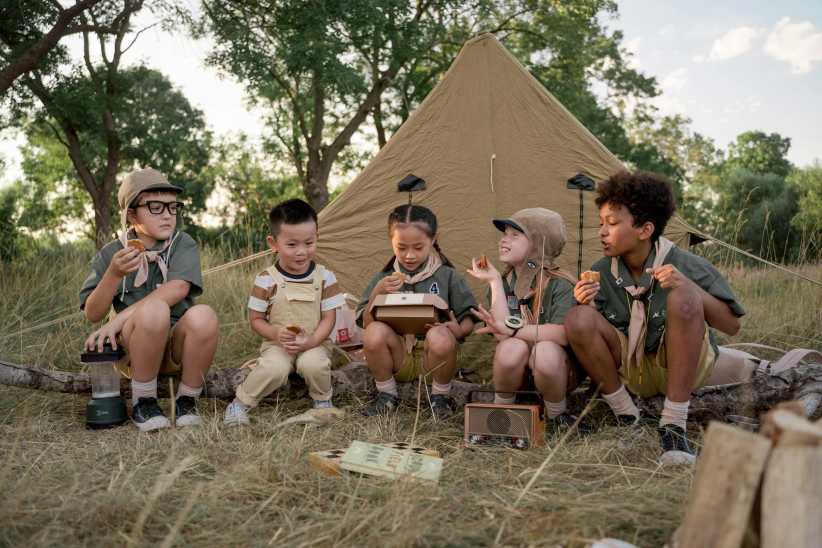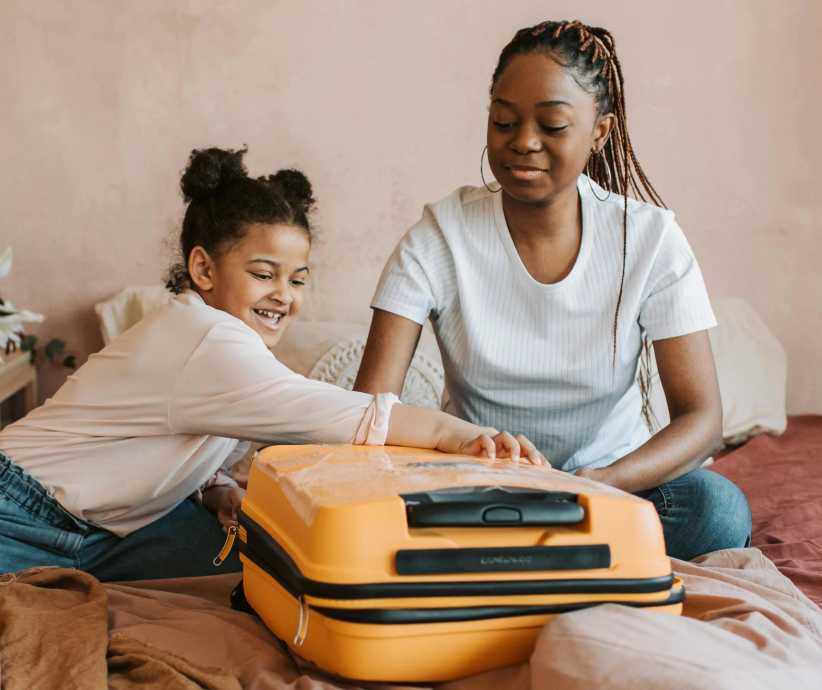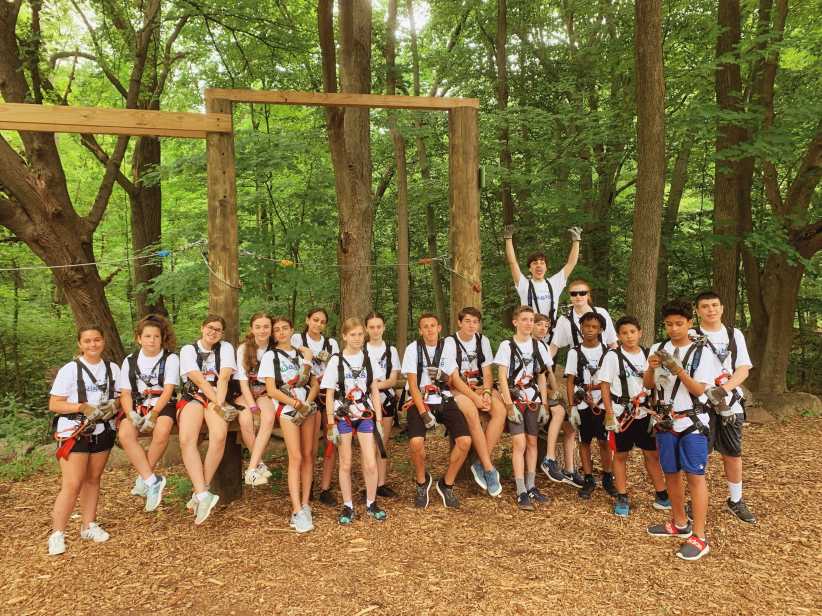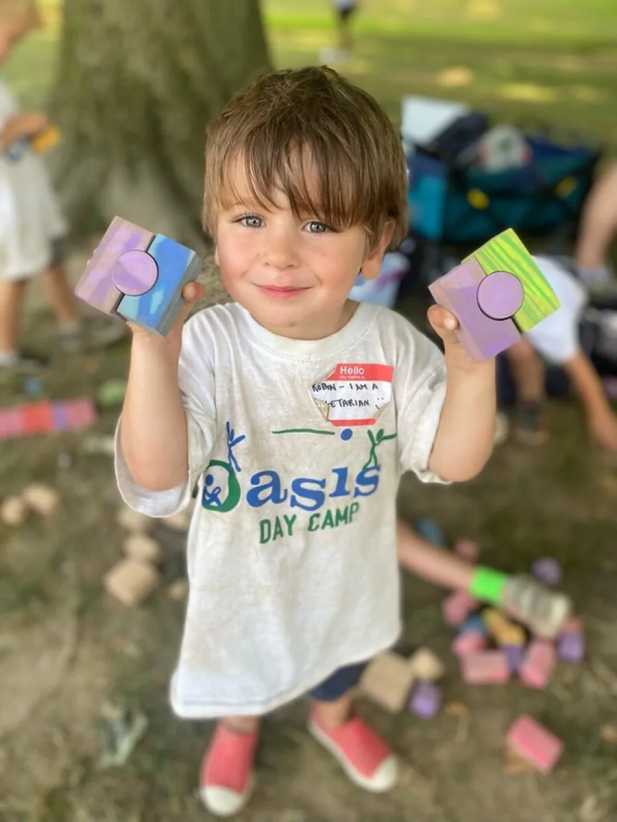Jeremy and Tony are excited to go fishing. Their counselor helps them to work out a way to share the one rod fairly without arguing. Their newfound ability to share without anger carries over to their cabin with who will operate the only working flashlight.
Sarah’s nature counselor watches with delight to see this shy nine-year-old gently and competently organize her camp friends into teams for a wildflower search. At the beginning of camp, Sarah was too nervous even to express an opinion about whether she preferred hot dogs or burgers on the grill.
Matthew and Valerie watch out for Robert as he maneuvers the climbing wall. They yell encouragement, cheering on their friend, who, unlike his cabinmates, struggles daily with juvenile rheumatoid arthritis. On Opening Day, these two teased Robert about his unstable walk and slow progress across the field. Cabin discussions about disabilities, a counselor’s careful example of kindness and respect, and just spending time together have helped the three form a strong friendship.
These children all demonstrate sophisticated skills in areas scientists are suddenly watching closely. mObservers are finding that a set of abilities, collectively called emotional intelligence, has much to do with how children grow and succeed. These skills—self-awareness, self-control, empathy, the ability to wait, the ability to listen, cooperate, share and work well with others—are actually better predictors of adult success and happiness than traditional IQ scores. In his book Emotional Intelligence, clinical psychologist and author Daniel Goleman makes two important assertions that parents may not find surprising. He reports on new research showing that children whose emotional intelligence skills are well-developed tend to be more successful at school, have deeper and healthier relationships, grow up to have more fulfilling work lives and become valuable and contributing members of their communities.
Goleman’s second assertion is that these emotional intelligence skills can be taught. Parents have long tried to teach courtesy and politeness to their children, but were never sure their teaching could overcome inborn capabilities. Parents and teachers have assumed that the patience children display naturally is probably most of the patience they can muster, or that they are good or bad sharers, gentle friends or playground bullies from birth. A group of researchers, led by Howard Gardner, a psychologist at the Harvard School of Education, have proven otherwise. They have shown that thoughtful teaching, conversation, modeling and practice can develop and nurture these skills, especially when that teaching is consistent throughout a child’s day and year.
Real Challenges Build Resiliency
Great camps have been teaching emotional intelligence since they began. Children away from home, with new friends and new challenges, can learn much about themselves and their own strengths and abilities. Perhaps the canoe doesn’t head where it should at first, or a cabinmate is unwilling to be friendly. Away from the familiarity of home and school, campers can test their own perseverance, and, with caring and thoughtful help, build new life skills for themselves.
Social skills, too, grow exponentially at camp. A campfire marshmallow roast is an exercise in sharing of sticks and the front row around the campfire. When campers take turns carrying the lunch to the top of the mountain, they learn firsthand how wonderful working together can be. A good counselor will gently remind her young hikers of this lesson, not later, but during the climb, when the message is fresh.
Teachable Moments At Camp
Summer camps work hard to train staff in modeling and teaching emotional intelligence skills. Camp counselors are often closer in age than teachers, and the informal atmosphere of camp encourages relaxed conversations at picnics or getting ready for bed. Then, too, there are usually more counselors with the children than in a regular classroom, allowing more interaction than one lone teacher can possibly supply.
When children find adult friends at camp who model perseverance, listening, teamwork and appreciation of differences, they set new and high standards for their own behavior. When they feel appreciated and valued by these friends, they are surer of their ability to live happily away from home. Successful camp summers can help smooth the transition to college in later years.
Emotional Intelligence Lessons: After Camp and Beyond
When campers return home from camp, parents can help them keep building their summer skills throughout the year. Chores are a great teaching opportunity at home, for example. Parents who model working together as a family to get jobs done are reinforcing vital lessons from camp.
Empathy means recognizing others’ needs, literally “feeling with” another person. Television reports are full of stories of children who have not been taught to empathize, children who become bullies or delinquents or worse. Parents can use these same TV reports as teaching moments about caring and sympathy.
Parents who teach emotional intelligence skills to their kids year-round will find the lessons reinforce each other in wonderful ways. And summer camps, where these lessons have been taught for years, are a key part of the reinforcement.
Posie Taylor serves as a board member-at-large of the American Camp Association. She is also the executive director emerita of the Aloha Foundation, Inc.
To learn more about camp and child development, please visit the American Camp Association’s family website, campparents.org.
Reprinted from CAMP magazine by permission of the American Camp Association; 2005 by the American Camping Association, Inc.
Visit the ACA resource website, campwizard.org or call 1-800-777-CAMP (2267) to speak with a camper placement specialist.























